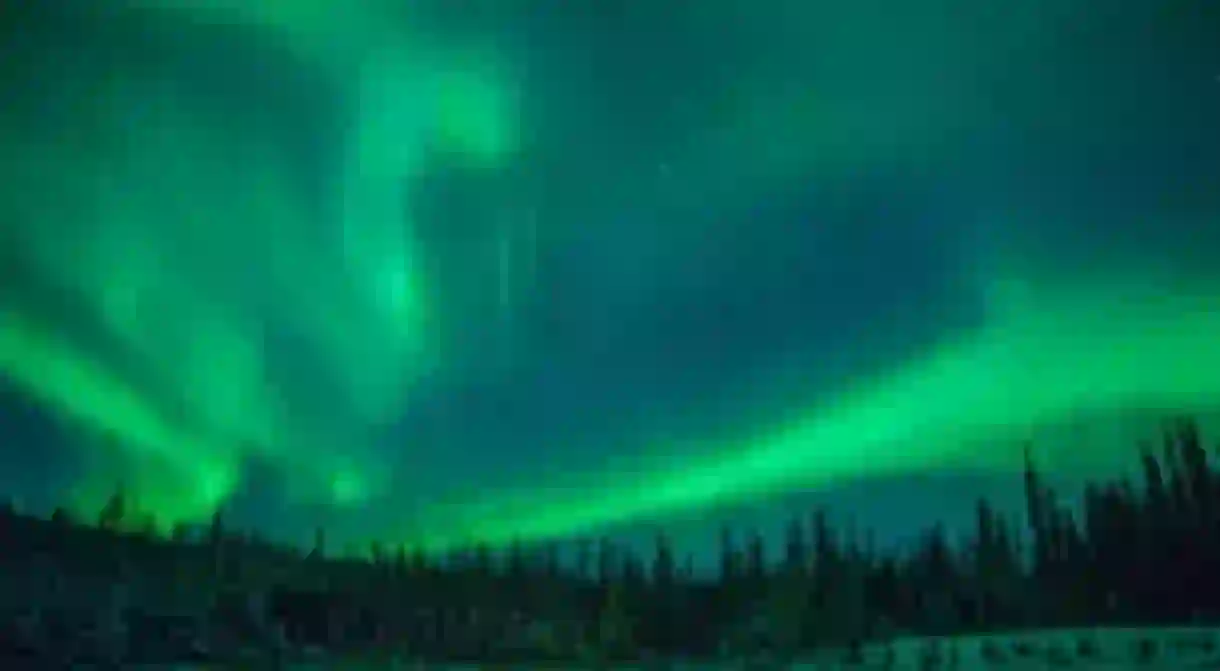Jesse Ruddock's 'Shot-Blue' Is a Stirring and Solemn Lyrical Debut Novel

A lone boy learns to navigate between social isolation and human connection in this Canadian bildungsroman.

Shot Blue, the debut novel by Canadian writer Jesse Ruddock, is set in an isolated fishing village in rural Canada. Other than the presence of motor boats and rolled cigarettes, there are few signs of life. Ruddock’s setting is a “north-country” visited by tourists two months out of the year and inhabited for the other ten by a grizzly bunch of stoic and laconic characters who are subject to the cruel and indifferent winters, isolated and scraping by without WiFi or phone signals.
This sparseness sketches the town of Prioleau Lake, a place so seemingly inhospitable that I first took Shot-Blue to be a post-apocalyptic work, or at least a reflection of a climate-ravaged world. Ruddock prefers to keep her setting bare-boned to enhance the central themes of her richly written novel, which focuses on the survival of an awkward, introverted boy named Tristan. When the book opens, his mother Rachel is slogging down a slushy half-thawed road, carrying what little she owns toward a boarding house in town. Tristan slags along while Rachel broods over her alienation from him:
“Tristan wasn’t allowed to help because he made her think. She didn’t need to think but to walk the mile. Yet back and forth to town, thoughts of him persisted, distracting her and biting into her shoulder more sharply than any strap. She thought of how he didn’t run for the sake of running like other boys. She couldn’t even picture what it looked like when he ran. And he didn’t try to lift things just to see if he could. He was ten years old and had never tried to lift her.”
This self-imposed alienation, despite its detriments to survival , is a central theme of the novel. Rachel’s distance from Tristan isn’t absent of love but, rather, complicatedly sober and sentimental. She’s constantly watching out for the boy—after trading the boarding home for an abandoned cabin on an island just outside of town, Rachel knocks on a nearby neighbor’s door seeking donations for kid’s clothes:
“They don’t need to fit,” she says. “Clothes should fit,” the young woman replies and then retrieves an outfit for Tristan, dressing him herself. “He stood still, held his arms up, lifted his feet one at a time. He watched the woman’s unfamiliar thick hands button his shirt and meet her face at the top. She smiled easily and kindly, but also efficiently: soon her smile was done…Rachel watched with her wax hands stuck at her sides, feeling she would never lift them again. There were no clothes for her.”
In the book’s second section, which occurs some time after Rachel has disappeared and is presumed dead, Tristin is taken to live with and work for a man named Keb. He remains a lone wolf, even as other teenagers annoy, and harass him.His lack of hope for human connection, however, invokes tenderness in two young girls—Marie and Tomasin—who vie for his affections. When his nose gets broken in a fist-fight, Tristan parries Tomasin’s tenderness:
“‘If you take a spoon, you could use it, you know’ Tomasin said, reaching out to touch his face, ‘to fix this,’ but he flinched and pulled back so she missed him. But Tomasin kept reaching and took a loose piece of his hair instead. ‘There,’ she said, tucking it over his ear, ‘much better.'”

While these events are poetically observed, Ruddock’s quick shifting changes in perspective don’t always make it clear who is making them. We are whimsically whisked through the heads of many different characters, sometimes jarringly so. But it’s ultimately Tristan’s story that Ruddock is concerned with navigating, helping him to flip what Rachel taught him, to place individual survival over human connection. “One stone at a time,” Ruddock writes in an aching passage of Tristan’s loneliness, “he was throwing the island into the lake, and it was no consolation but it was true he was doing it. The island was disappearing, imperceptibly to everyone but him.”
Ruddock’s masterful conceptual subtlety is not just found in the introverted and powerless Tristan, a boy who has never tried to lift his mother and tosses rocks into lakes to make his circumstances disappear, but also in her alluringly cinematic narrative. Similes and metaphors like Rachel’s “wax hands” or how a road “peels” under footsteps “like skin off rotten fruit” shine throughout. Ruddock’s prose style is often this painterly, a talent she is unafraid to wield with bravado:
“The sky was encouraging her, Marie thought, looking out the back window filled with light like a swimming pool. The sky couldn’t be more blue. It wasn’t the blue of clothes and bedspreads, not the blue of a pen, and not even the blue of painted things, like the handles of her father’s tools, which he painted blue so that everyone knew they were his. Marie slowly grew infuriated that she could draw no comparison between this blue and something that she could put her hands on. It was infuriatingly blue. The idea of blue. Not her idea…someone else’s idea.”
Even as we follow Ruddock lyrical storytellingthrough Shot-Blue‘s indifferent landscape and rugged characters, she is ultimately guiding us toward Tristin’s dawning realization of human connection and love. She ends her book as poetically as she began it, foregoing straightforward answers for something bordering on intuition, leaving the reader to float face up in the sea of vibrant language, bobbing in her shifting, ambiguous, and graceful waves.
SHOT-BLUE
by Jesse Ruddock
Coach House Books | 240 pp. | 17.95













